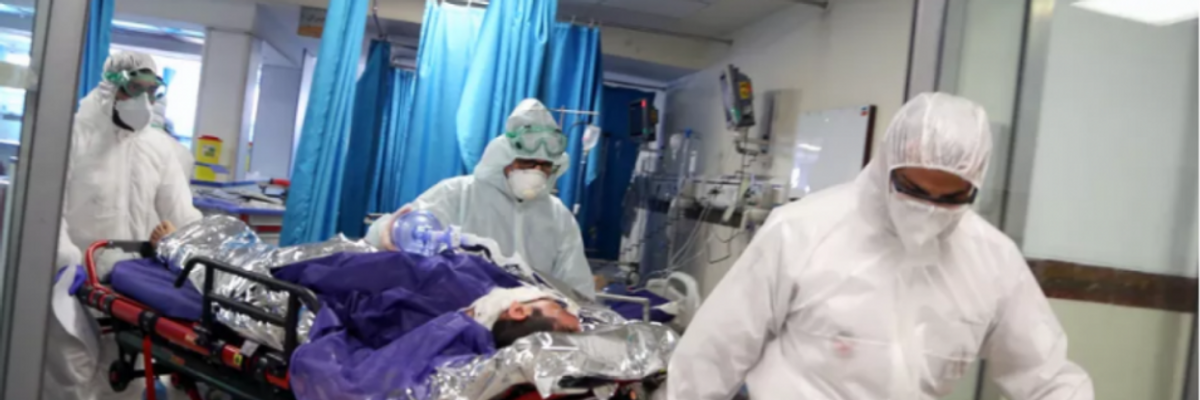COVID-19 has spread rapidly through our community. It has shown us what happens when we work together to confront a common enemy, and what happens when we delay. With each new diagnosis there is more fear. And, importantly, more evidence of everyday heroism.
In the hospital, teams of doctors are working on newly created COVID wards, and rapidly incorporating new data and treatment options into their practice to save as many lives as possible. Nurses are working extended shifts, mostly at the bedsides of their patients, filling the void as hospitals limit visitors. Respiratory therapists are risking exposure to COVID every time they manipulate a ventilator. Administrative staff are being redeployed from their jobs behind the phone to checking in sick patients, passing out masks, and stocking shelves. Cleaning staff are running between rooms, working at a sprinter's pace while running a marathon.
And, as intensive care units fill and hospital capacity is taxed, healthcare systems are facing a new reality: without scheduled outpatient clinic visits, elective surgeries, and routine procedures they can't afford to operate. In just the past week, three major healthcare systems in Massachusetts announced that they were furloughing staff without pay, freezing all scheduled pay raises, and limiting benefits. With the peak of COVID infections still weeks away, these decisions were just the start of hard times for America's hospitals. In mid-March, the White House Coronavirus Task Force announced that all nonessential (elective) procedures should be cancelled for the foreseeable future. The American hospital system is facing the loss of billions of dollars. With the current system for reimbursement, the only chance they have to survive is to cut costs - like salaries, benefits, and jobs.
"We must recognize two facts: American hospitals need an immediate infusion of money to continue operating and we must fundamentally change the way we pay for care going forward. "To be clear, American hospitals aren't providing less care. Outpatient care continues. I still spend hours a day calling my patients to check on their chronic conditions and have to add in time to talk through the increase in anxiety and depression symptoms that are associated with prolonged social isolation. My nurses continue to answer the phones for worried patients looking for advice, refilling prescriptions, and triaging care. And, the administrative staff has retooled for work at home, scheduling "visits" and processing prior authorizations over the phone. We also all stand at the ready, waiting to be deployed in whatever way possible.
Patient care continues, even in the absence of payment. In healthcare, we do what we do for our patients. We run towards the fire to save as many as we can and comfort those we can't. We don't expect much when we leave at the end of a long day or a sleepless night. But, we deserve to know that we can come back the next day to do it again.
Every doctor, nurse, respiratory tech, and first responder should know that their job is secure, their pay is guaranteed, and their benefits are in place. To do that, we must recognize two facts: American hospitals need an immediate infusion of money to continue operating and we must fundamentally change the way we pay for care going forward.
In March, the Federal government allocated $6 trillion to support American workers, sure-up small businesses, and bail out the airline and cargo industries. The next phase of funding must support America's hospitals, providing them with enough capital to secure our healthcare workforce and avoid further furloughs, pay cuts, or scale backs of benefits.
We can use this time to realign the way we pay for healthcare to a structure that values care over billing codes. Reopening the healthcare exchanges, expanding Medicaid in all 50 states, and moving towards a Medicare for All healthcare system will not just stem the financial losses that hospitals are now experiencing, but will ensure that we are prioritizing care and equity in our healthcare system. The advances we've already seen--reimbursing telehealth, expanding licensures, increasing access to home health services--must continue even after COVID-19 is behind us.
In 2008, the banks were too big to fail, so we moved quickly to bail them out. Now, in the face of the largest public health crisis we've seen in a century, the American hospital system is too important to fail. Let's do all we can to keep it healthy.
